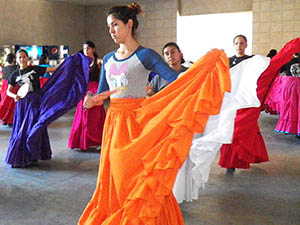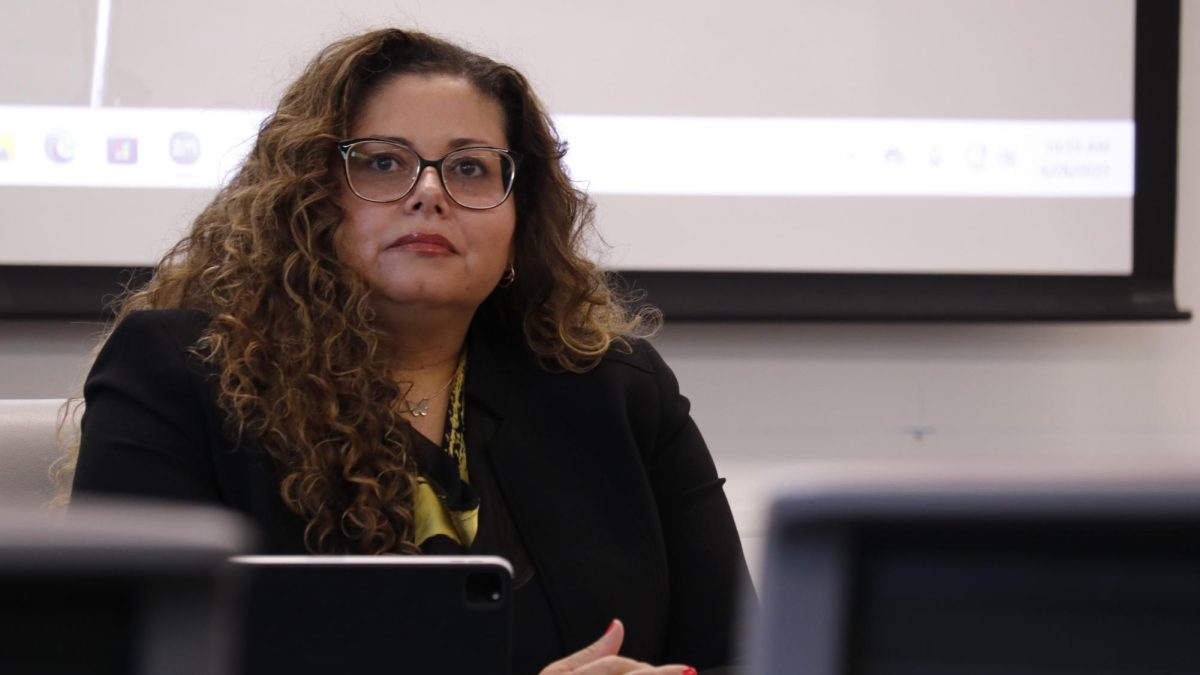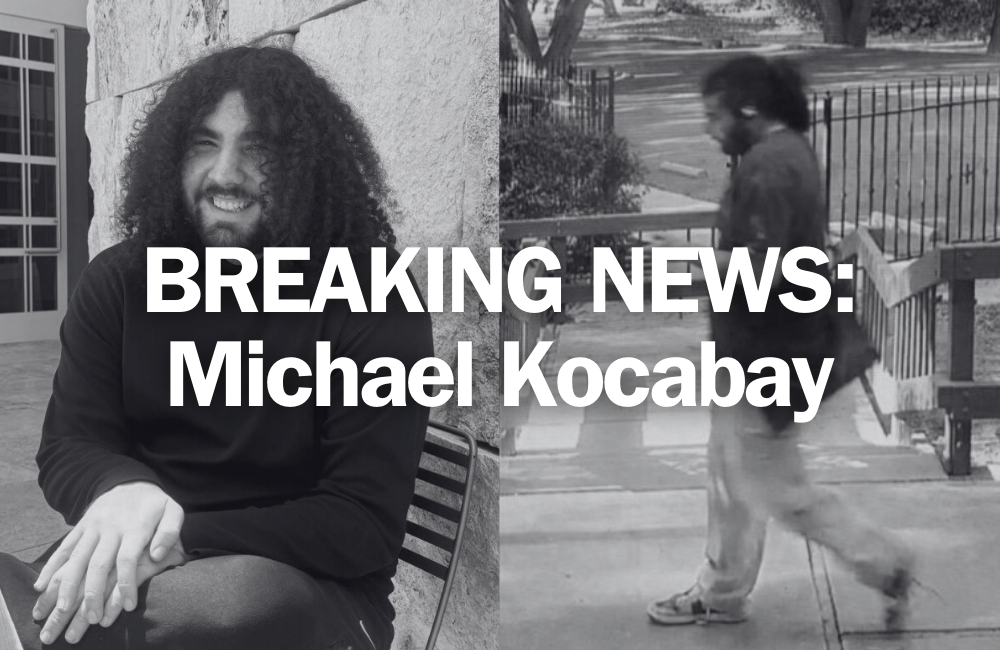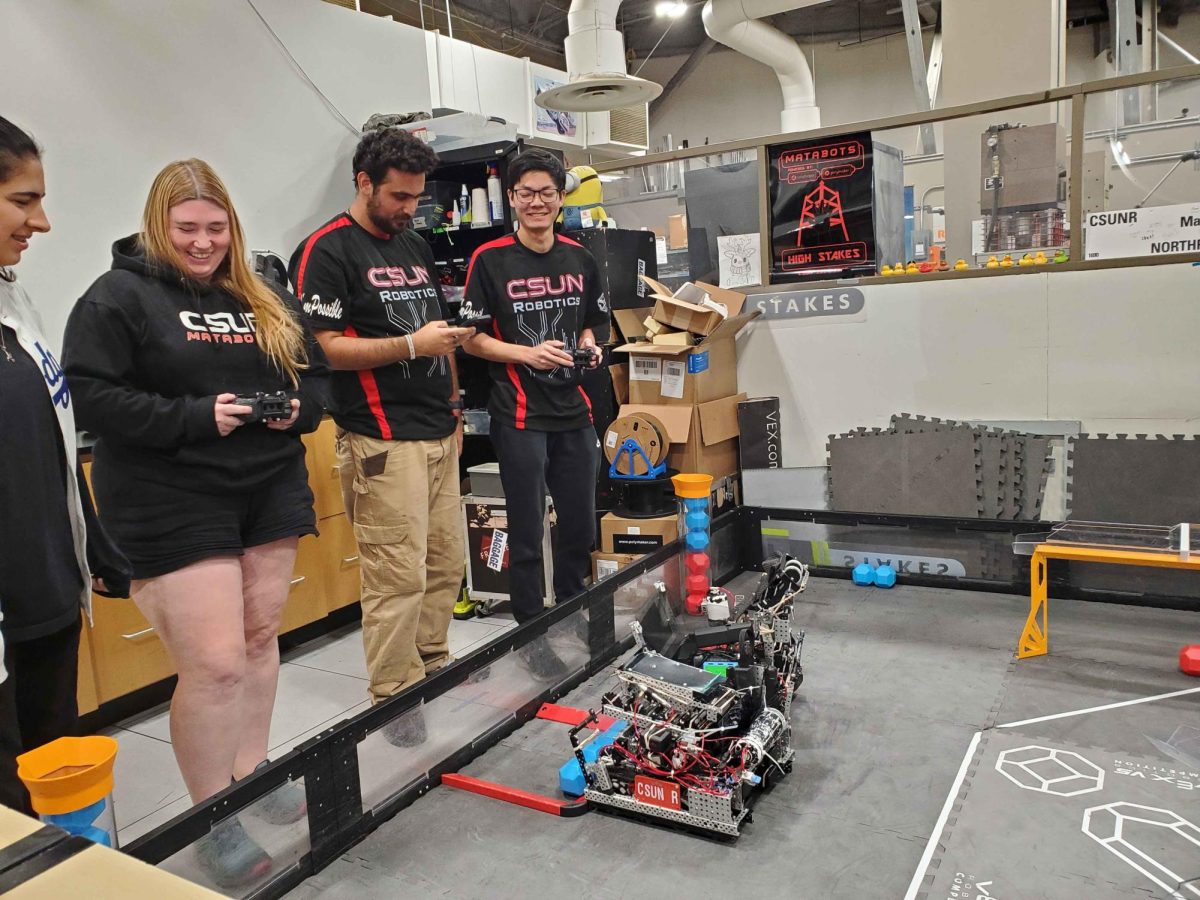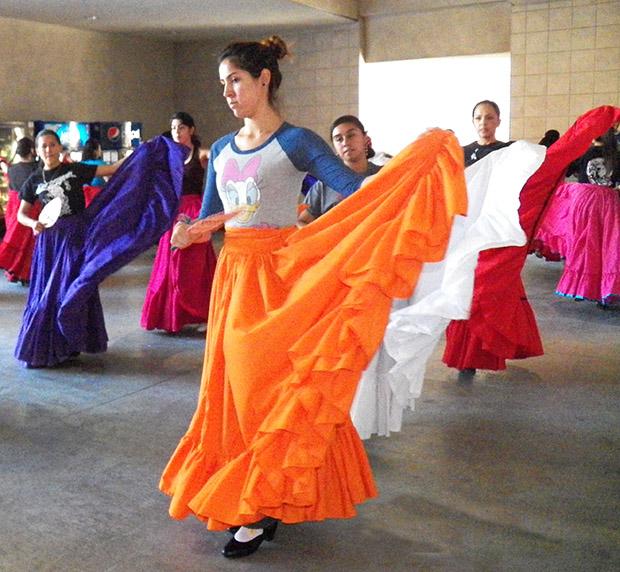
The sound of dance shoes hitting the ground and Mexican music echoed through Jerome Richfield Hall on a Friday evening. Following the sounds led to room 118, where Ballet Folkorico Aztlan de CSUN (BFA de CSUN) practices every week.
The group was founded in 1970 and is composed primarily of students who want to learn the various styles of Mexican dance called “ballet folklorico.”
While all levels of dance are welcome, some members of the group do have prior experience. Graciela Vargas, treasurer, has been dancing since second grade.
“We do it because most of us have a lot of passion for it,” she said.
Vargas, 21, sophomore sociology major said she gets along with the other people in the group.
“I have a lot of fun because we’re all really loud,” she said.
Noelle Hayikian, a 21-year-old CTVA major, was encouraged to join BFA de CSUN by her mother who also danced ballet folklorico, and was a member of the club in the 1970s.
“She said, ‘It’s hard work, but you’re going to have a lot of fun,’” Hayikian said. “Technically, you can say I’m a legacy.”
Hayikian, who is also the group’s public relations officer, has been performing various forms of dance since she was a child. However, she wasn’t prepared for the amount of footwork involved in ballet folklorico.
“At first I kind of didn’t get the footwork, but it’s a lot easier now,” she said.
Hayikian has performed various forms of dance from ballet to modern, hip hop to belly dancing and loves to dance no matter the type.
“I love hearing the music and moving my body to it,” she said.
Erika Lopez, president of BFA de CSUN, comes from a family that dances ballet folklorico.
“I’ve been dancing pretty much since I was born,” she said.
Lopez, a 22-year-old senior said she joined the group after her sister, who did not attend CSUN, enjoyed the experience.
“It’s mostly students and alumni (in BFA de CSUN), but it is open to community members” she said.
Lopez added that no experience is required to join.
“We take all different levels of experience,” she said.
The group invites different dance teachers or “maestros” to instruct the class, but also has the students themselves teach dance moves from various states in Mexico.
Adviser Diana Cabral said BFA de CSUN is different from other clubs on campus because although they are chartered by Associated Students, they welcome community input.
“A few times we’ve invited maestros, maestras from Mexico to provide workshops,” she said.
Cabral said the group has thrived in part because of the Chicana/o studies department.
“We’re one of a few university folkorico groups that has survived,” she said.
Cabral added that the members share pride in the CSUN community, so much so that during the 1990s the name of the group was lengthened to include “de CSUN.”
“We’re extremely proud to be from this university and be this university’s folklorico (group),” she said.
